Physical Address
304 North Cardinal St.
Dorchester Center, MA 02124
Physical Address
304 North Cardinal St.
Dorchester Center, MA 02124
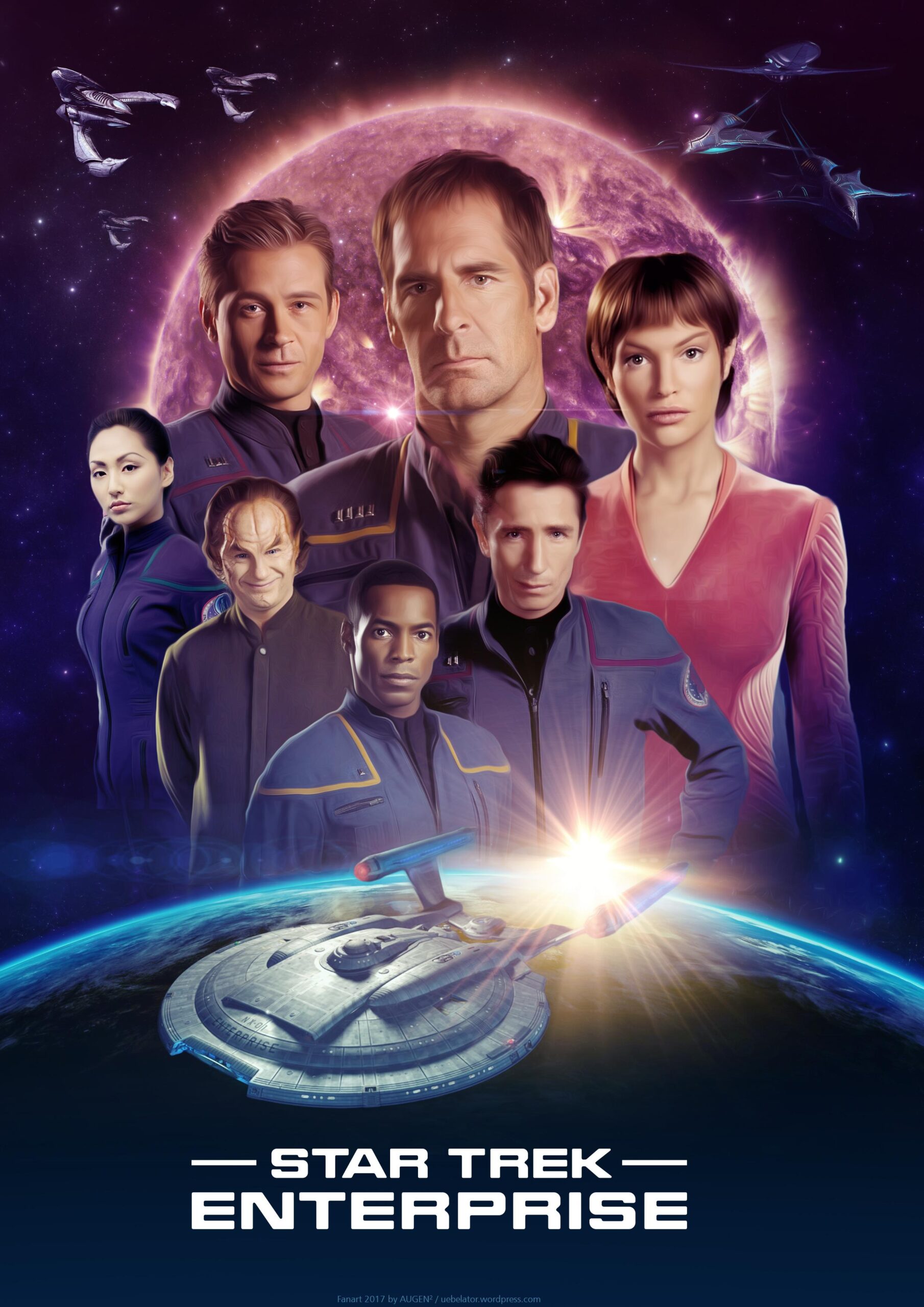
Star Trek: Enterprise captivated audiences with its unique take on space exploration and the origins of the iconic Starfleet. As part of the beloved Star Trek franchise, this series introduced fans to new adventures, memorable characters, and thrilling episodes that expanded the Trek universe. Whether you are curious about every episode of Star Trek: Enterprise, exploring the seasons in depth, or looking for the best story arcs to watch, this guide provides a comprehensive look at each season, highlights top episodes, and even explains how you can catch episodes for free. Discover the journey of the NX-01 and its unforgettable crew.
Star Trek: Enterprise is a captivating series that explores the early days of space exploration before the formation of the United Federation of Planets. The episodes take viewers on thrilling adventures aboard the starship Enterprise NX-01, led by Captain Jonathan Archer. From the very first episode, “Broken Bow,” the crew encounters new alien species, mysterious phenomena, and challenging moral dilemmas that set the tone for the series.
Throughout its four seasons, the show balances action-packed missions with character-driven stories. Episodes like “Breaking the Ice” reveal cultural exchanges with Vulcans, while “Cold Front” introduces intriguing time-travel elements and secretive alien observers. The series also delves into the complexities of interstellar diplomacy and the consequences of first contact, making it a rich addition to the Star Trek universe.
Fans appreciate how Enterprise expands on the lore by showing humanity’s tentative steps into deep space, highlighting both the excitement and the dangers of exploration. Although some episodes are considered less essential, the overall arc builds toward the eventual unity of diverse species in the Federation, making it a rewarding watch for Star Trek enthusiasts.
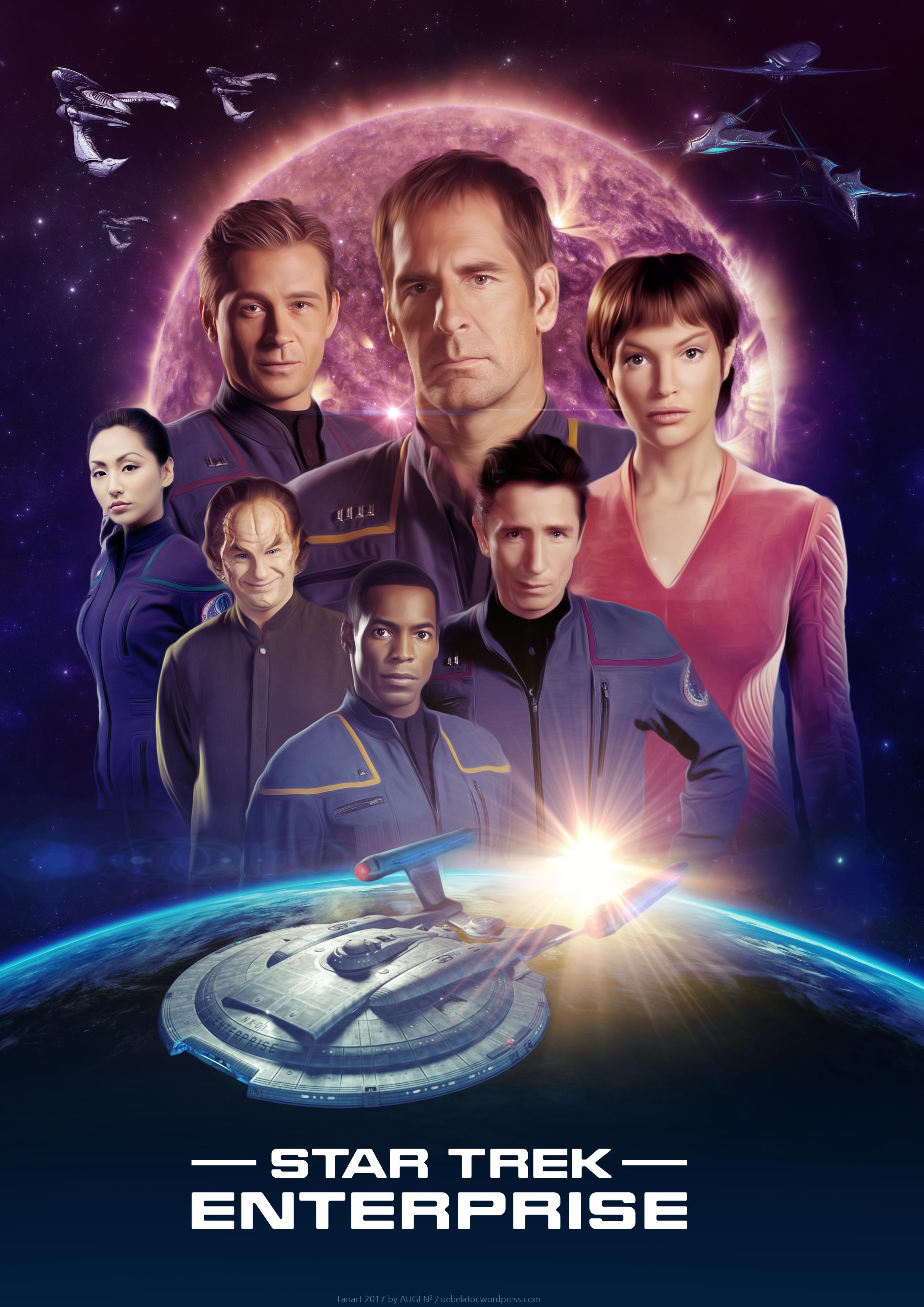
Star Trek: Discovery is a vibrant addition to the Star Trek universe, set about a decade before the original series. It follows Commander Michael Burnham, whose controversial actions ignite a war between the United Federation of Planets and the Klingon Empire. After being court-martialed, she joins the USS Discovery, a starship with a unique spore drive that allows instant travel across vast distances. The series blends intense space conflicts with deep explorations of identity, teamwork, and the ideals of Starfleet.
As the show progresses, the crew moves beyond war and into exploration, facing complex challenges that test their ingenuity and cooperation. The story takes a bold turn when Discovery travels 900 years into the future, where the Federation is fractured after a catastrophic event called “The Burn.” Here, the crew must navigate a galaxy filled with new threats and help rebuild hope and unity.
What makes Discovery special is its mix of thrilling sci-fi adventure and thoughtful character development, showing how people can come together to solve impossible problems and uphold their values even in dark times.
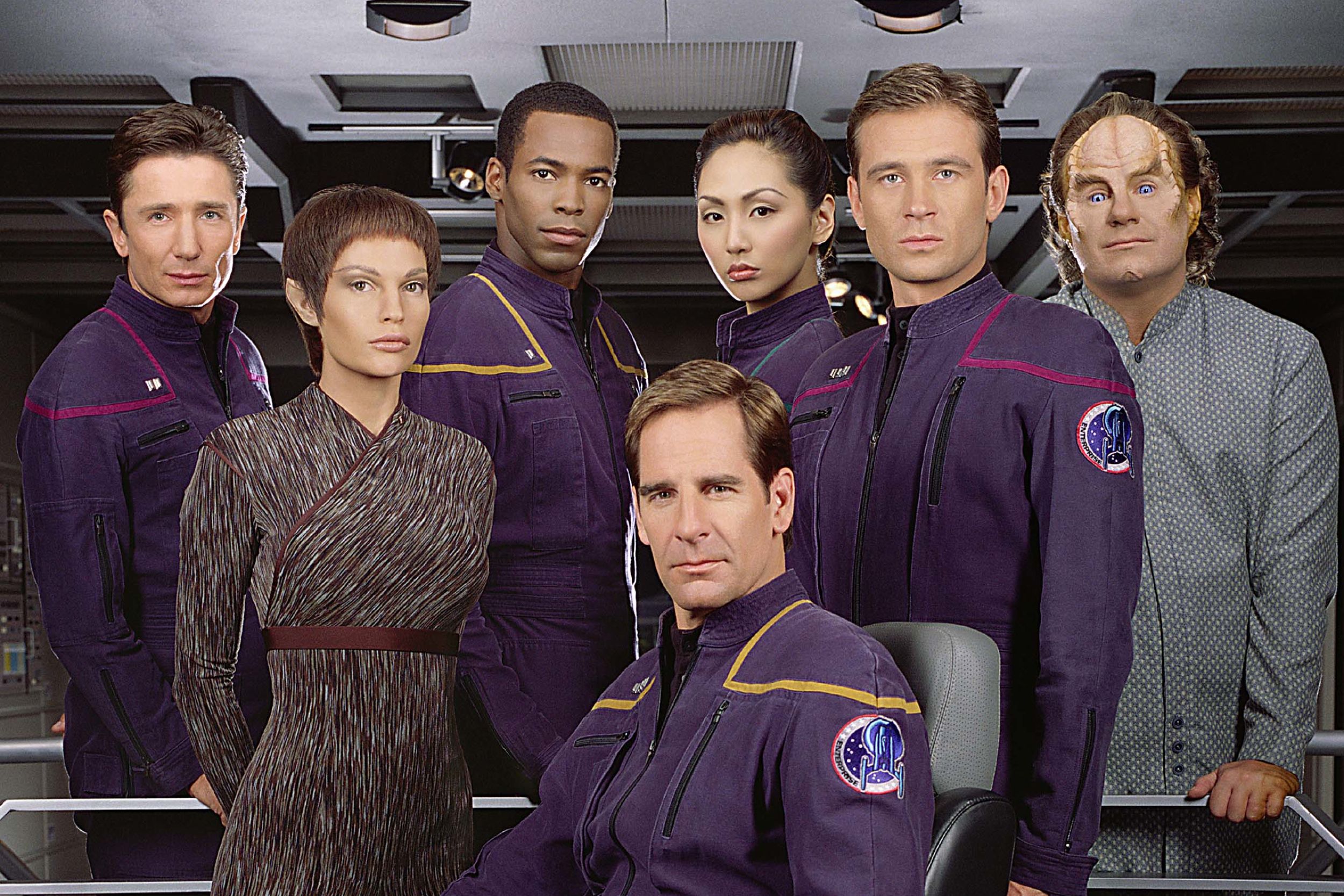
Star Trek: Enterprise Season 1 takes us back to the 22nd century, about a hundred years before Captain Kirk’s famous voyages. It follows Captain Jonathan Archer and his crew aboard the Enterprise NX-01, Earth’s first warp 5 starship, as they embark on daring missions to explore deep space. The season kicks off with the episode “Broken Bow,” where the crew must help a stranded Klingon warrior return home, setting the stage for complex interstellar politics and the early challenges of space exploration.
What’s really interesting about this season is how it shows humanity’s tentative first steps into the galaxy. The crew faces new alien species, diplomatic dilemmas, and mysterious threats like the Suliban, all while learning to work together under Archer’s leadership. The presence of T’Pol, a Vulcan assigned as a chaperone, adds tension and insight into Vulcan-human relations. The stories often focus on diplomacy and moral challenges rather than just action, reflecting the hopeful spirit of discovery that defines Star Trek. Overall, Season 1 offers a fresh look at the origins of the Federation with a mix of adventure, character development, and the excitement of exploring the unknown.
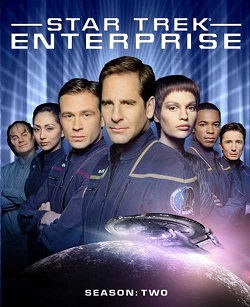
The first season of Star Trek: Enterprise takes viewers on an exciting journey as humanity embarks on its earliest deep-space exploration missions. The season kicks off with the two-part pilot “Broken Bow,” where Captain Archer and his crew set out aboard the Enterprise NX-01 to make first contact with new alien species. Throughout the season, the crew encounters a variety of challenges that test their values and diplomacy, often facing moral dilemmas that emphasize communication over violence.
Episodes like “Vox Sola” showcase the classic Star Trek theme of understanding truly alien life forms, while “Shuttlepod One” focuses on survival and character development in a tense, confined setting. The season balances moments of wonder with the realities of space travel, including political intrigue and the consequences of first contact. The finale, “Shockwave, Part I,” delivers a gripping cliffhanger involving a catastrophic event that threatens the mission and the future of space exploration. While some episodes received mixed reviews for their plots, the season overall laid a solid foundation for the series by exploring new frontiers and the spirit of discovery in a fresh prequel setting.
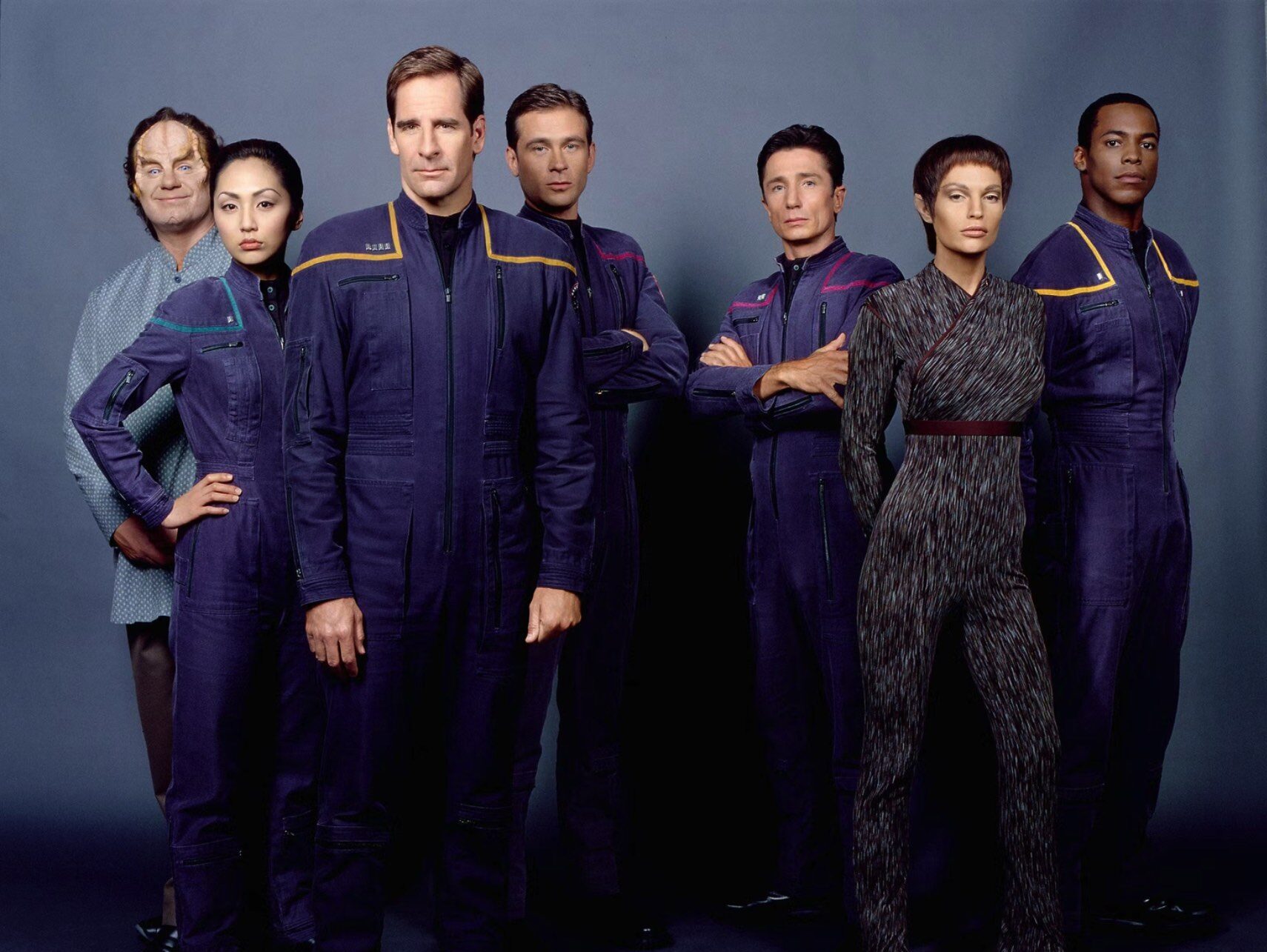
Star Trek: Enterprise Season 2 takes the crew on some intriguing adventures while deepening character development and exploring new alien cultures. This season moves somewhat away from the heavy Temporal Cold War storyline of Season 1 and instead focuses more on standalone episodes and the evolving dynamics between humans and other species like the Vulcans and Andorians.
One standout episode, “Carbon Creek,” offers a charming look at early human-Vulcan contact through a flashback to 1950s Earth, blending humor and heart. The season also includes tense moments like Archer’s repeated imprisonments, which some fans found a bit repetitive but still added drama. Episodes like “Regeneration” and “Cogenitor” explore ethical dilemmas and character challenges, adding depth to the series.
Overall, Season 2 balances classic Star Trek optimism with darker, more complex themes, showing the crew facing tough choices and growing through their experiences. It’s a season that offers a mix of action, moral questions, and character moments, making it a solid continuation of the Enterprise story.
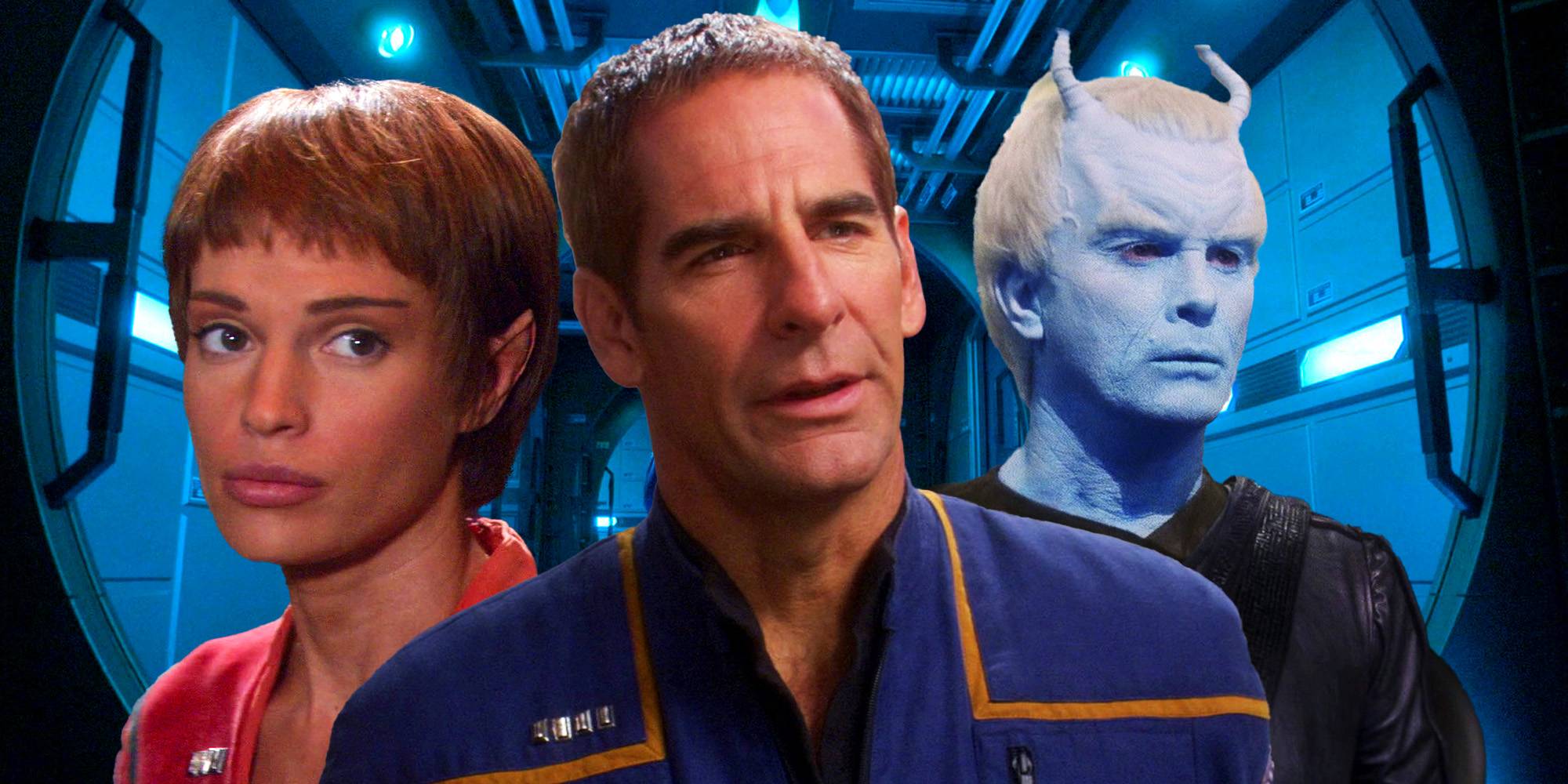
Star Trek: Enterprise Season 4 takes the series in an exciting new direction with a mix of mini-arcs and standalone episodes that deepen the lore and character development. The season wraps up the long-running Temporal Cold War storyline, giving fans a satisfying closure. Captain Archer and his crew face new challenges, including a group of genetically enhanced superhumans called the Augments, led by the brilliant but dangerous Dr. Arik Soong. Their plan to awaken thousands of genetically altered embryos threatens humanity’s future, creating intense drama and moral dilemmas.
The season also explores political intrigue with the Terra Prime movement, which opposes alien influence on Earth, adding a darker, more complex layer to the story. Meanwhile, T’Pol returns to Vulcan, leading to significant developments in Vulcan society and her personal life. One of the standout moments is the resolution of the Klingon genetic mutation mystery, which ties up decades of Star Trek continuity in a visually impressive and satisfying way. While some fans find Season 4 less thrilling than Season 3, it is generally praised for its ambitious storytelling and for bringing the series to a strong conclusion.
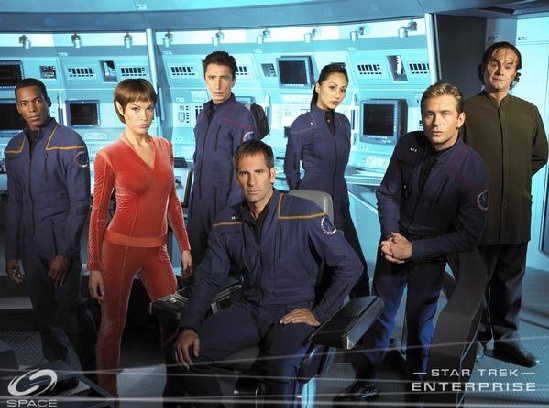
Star Trek: Enterprise, which aired from 2001 to 2005, has a total of 98 episodes spread across four seasons. The show originally started with the title Enterprise for its first two seasons before adopting the full Star Trek: Enterprise name. It serves as a prequel to the original Star Trek series, set in the 22nd century, about 100 years before Captain Kirk’s adventures.
Interestingly, the first season had a hefty 26 episodes, which was a point of frustration for the lead actor Scott Bakula, who felt that such a long season was exhausting for the cast and crew. The episode count was reduced in later seasons, with season three having 24 episodes and season four just 22, which Bakula and the producers found more manageable and creatively satisfying. The third season is often noted as a turning point for the series, featuring a tighter, more serialized storyline.
So, if you’re planning to dive into Star Trek: Enterprise, you’re looking at nearly a hundred episodes that explore the early days of space exploration in the Star Trek universe.
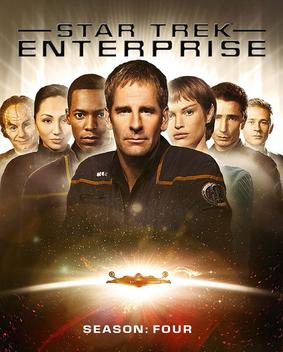
If you’re looking to watch free episodes of Star Trek: Enterprise, there are a few options to consider. While the series isn’t widely available for free streaming on major platforms, you can catch some episodes on The Roku Channel, which offers free streaming with ads for the first season. Additionally, Pluto TV provides Star Trek: Enterprise for free with ads, making it a convenient choice if you don’t mind occasional commercial breaks. For those who prefer subscription services, Paramount Plus streams the entire series, but it requires a paid subscription. If you want to own the show, it’s also available for purchase or download on platforms like Apple TV and Amazon Video, and even on Blu-ray for collectors. So, while completely free access is limited, these ad-supported platforms are your best bet to enjoy the adventures of Captain Archer and the crew without paying upfront. Just keep an eye out for any promotional free trials or changes in streaming availability, as these can sometimes offer temporary free access.
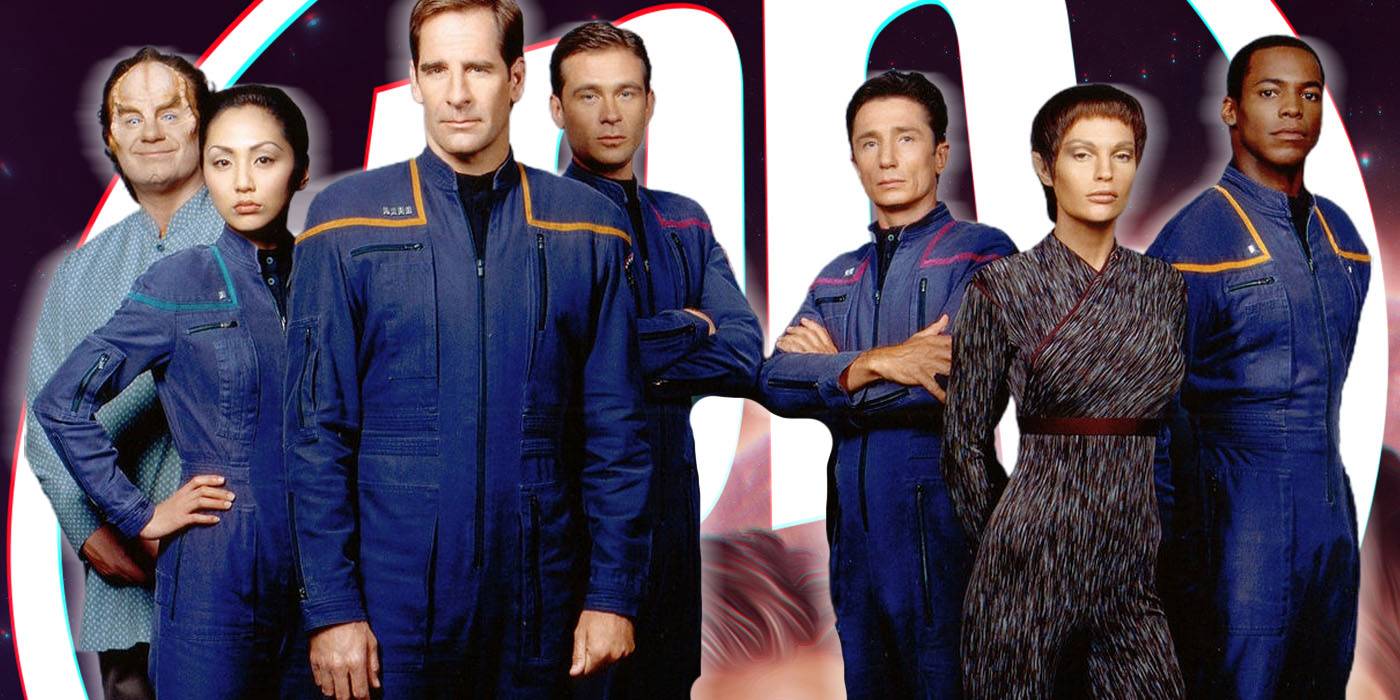
Some of the best episodes of Star Trek: Enterprise truly stand out for their storytelling and emotional depth. “Twilight” (Season 3, Episode 8) is often hailed as a masterpiece, where Captain Archer loses his memory and wakes up years after Earth has been devastated, offering a poignant look at loss and hope. Another fan favorite is the two-part “In a Mirror, Darkly” (Season 4, Episodes 18 and 19), which explores the dark Mirror Universe with a gripping mutiny and clever twists, widely regarded as the series’ crowning achievement. “Similitude” (Season 3, Episode 10) is a deeply emotional episode that tackles ethical dilemmas through the creation of a clone to save Trip Tucker, showcasing strong character work and moral complexity. The Vulcan-centric episodes “The Forge,” “Awakening,” and “Kir’Shara” provide fascinating insights into Vulcan culture and politics, enriching the series’ lore. Episodes like “Carbon Creek,” which tells a charming story of Vulcans stranded on Earth in the 1950s, and “First Flight,” a prequel exploring Archer’s early days, also receive high praise for their unique narratives and character development. These episodes highlight the best of Enterprise’s blend of adventure, ethics, and character drama.
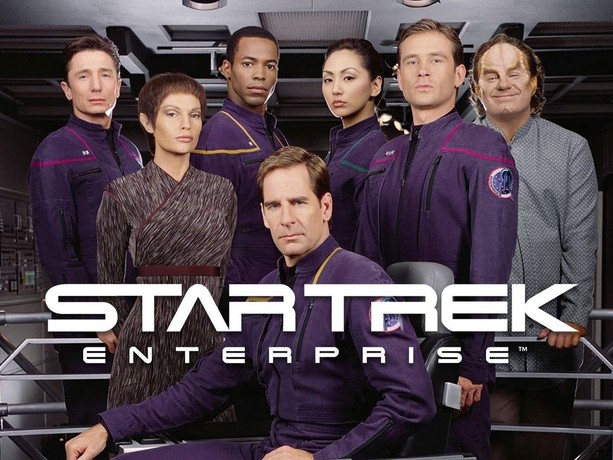
If you’re a fan of sci-fi and haven’t yet explored Star Trek: Enterprise, it’s a great time to dive in. This series, starring Scott Bakula, takes you back to the early days of space exploration within the Star Trek universe, offering a fresh perspective on the franchise’s lore. You can watch all the episodes streaming on Paramount Plus and its associated channels, or even for free with ads on Pluto TV, which is a nice option if you want to sample the show without a subscription.
The show blends adventure, drama, and the classic Star Trek spirit of discovery, making it enjoyable whether you’re a longtime fan or new to the series. If you prefer owning your favorite episodes, you can also buy or rent them digitally on platforms like Apple TV and Amazon Video, or get the complete series on Blu-ray for a more permanent collection. Watching Star Trek: Enterprise is a fun way to experience the origins of Starfleet and the challenges faced by humanity as it reaches for the stars.
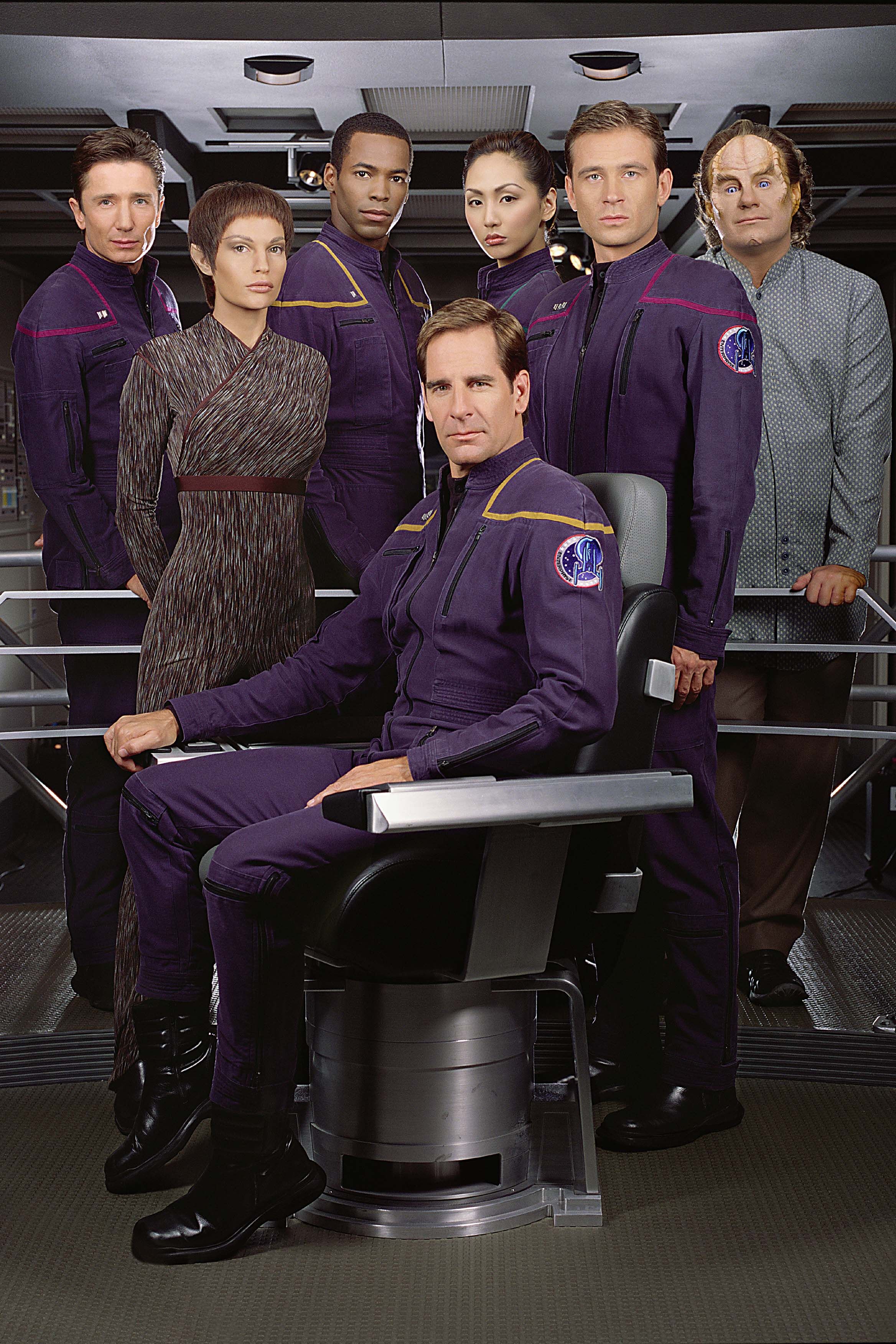
In conclusion, “Star Trek: Enterprise” offers a rich tapestry of storytelling that both honors and expands the Star Trek universe. Through its exploration of early space exploration, character development, and the intricate dynamics of interstellar relationships, the series has carved a unique niche within the franchise. Each episode serves as a window into the challenges and triumphs faced by humanity as it steps into the vast unknown. Despite facing mixed reviews and a short run, its contribution to the overarching narrative of Star Trek continues to resonate with fans, reminding us of the enduring spirit of exploration and the quest for understanding in our universe.